Part One – Poland
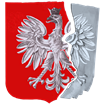
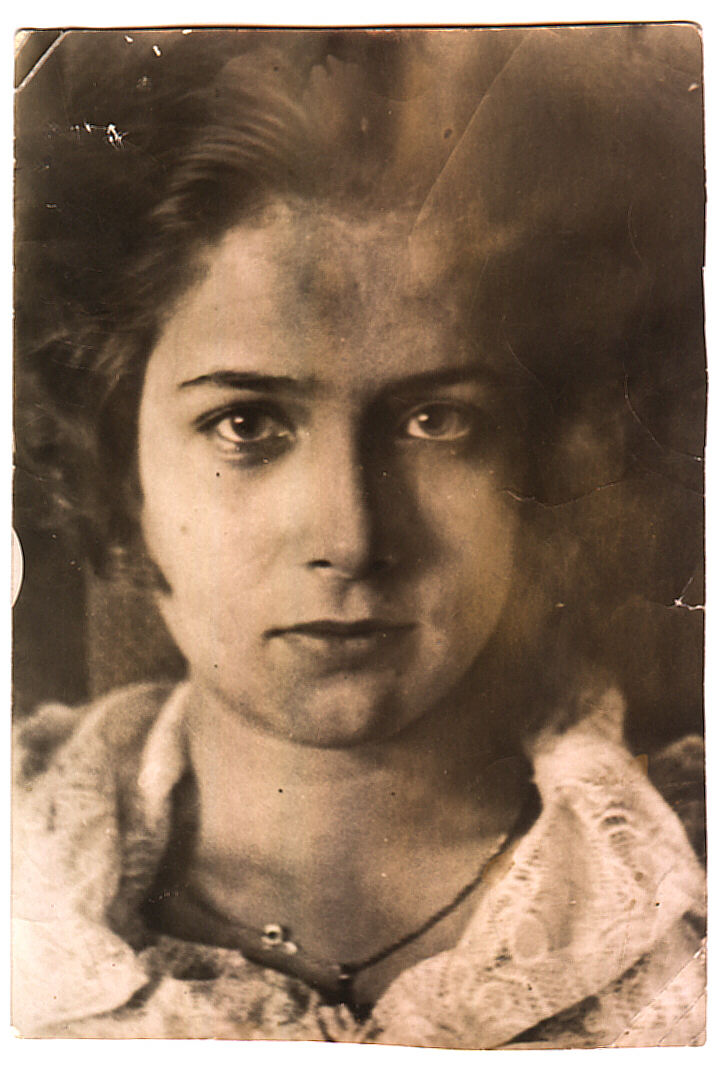
Janina Sulkowska, 1934
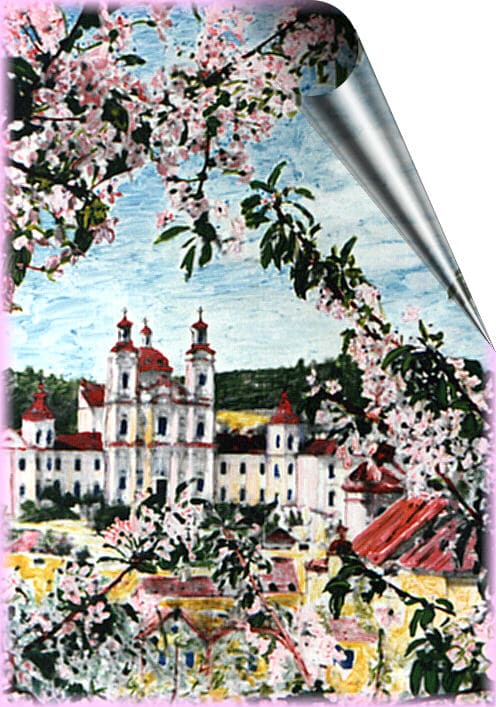
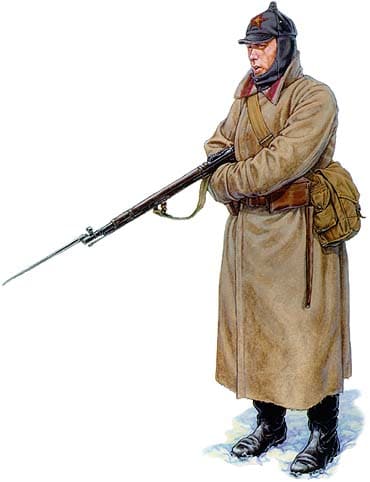
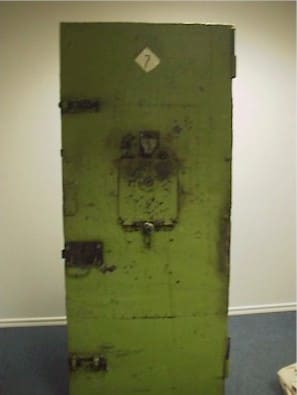
Punishment Cell: Some went insane or died behind the door.
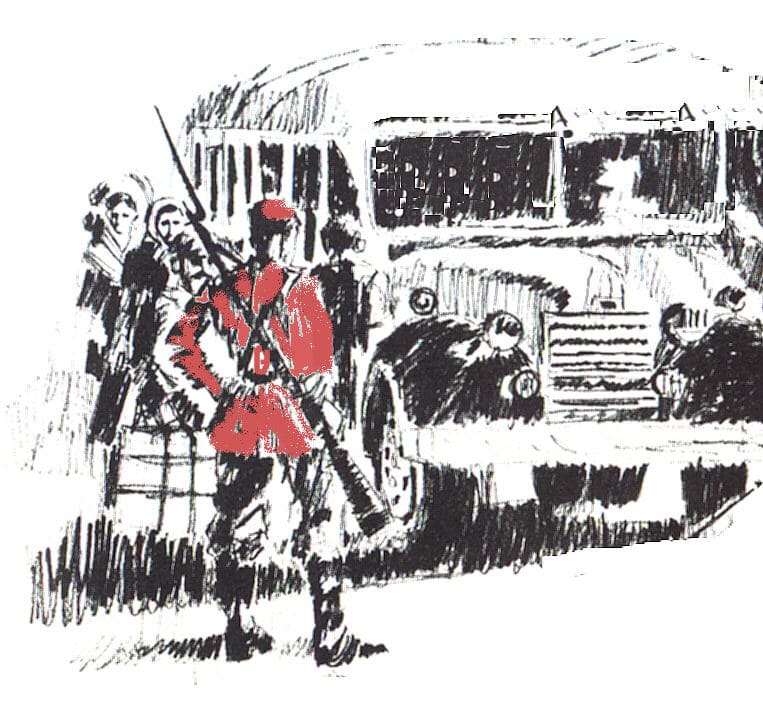
Black Raven
Final Interrogation… and Confession
One day in early October I was marched downstairs and out of the prison to a waiting car. I was dumbfounded to find myself outside the gates. It was a most amazing trip through the city of Dubno. We passed the hop processing plants, the former Polish garrison facilities, and the Palace of the Lubomirskis. But my eyes feasted on the greenery: sunflowers taller than a person, lush gardens, apple trees bent with fruit. The last time I’d been driven along this route there was ice and snow everywhere. My captors had stolen spring and summer from me! I was now looking at the world with different eyes; it seemed that I was beyond all this bountiful life.
I was taken to NKVD headquarters and seated in a spacious room. An unfamiliar NKVD Captain announced that I had been under interrogation for almost seven months and it was time to conclude my case. He complained that I hadn’t co-operated, and that Titov had been too gentle in extracting information from me. He added that my confession was not really needed now as the NKVD had in custody those who knew more than I do–and he would make them sing. He showed me briefcase after briefcase full of confessions and reports. I felt he was trying to trick me.
He took out the file of Colonel Tadeusz Majewski, which he read, looking up occasionally to see my reaction. I learned that “Grandpa” had been arrested in July in Rowno along with the whole ZWZ for Wołyn, which numbered some 2,000 conspirators–including presumably everyone I knew! Majewski was convicted for being the “leader of a counter-revolutionary group of an army plot to undertake armed insurrections against the ZSRR.”
My heart sank further as excerpts from confessions and statements were read which implicated me as being in a certain place on such and such a date, or carrying a particular message to a named person, and so on. Much of it was correct–but there were also false claims, including one that I had smuggled weapons to Lwów! I didn’t want to contemplate what methods had been used to extract this information. And yet I felt both relieved and guilty.
The NKVD officer would read an excerpt, shuffle the papers, and leave the room–only to return and begin again. He finally asked me if I knew Henryk Józewski (one of our original leaders). I indeed knew him from his pre-war association with our student organizations and as a painter, and that he had been appointed by Pilsudski to the Ukrainian government of Petlura in the early 1920’s. But I let on that my only knowledge of Józewski was from newspapers–I had learned that any admission could have dire consequences for the person in question.
Once again the officer left the room, and returned by a side door which he left wide open. He began to read facing the window on my right side–giving me a view of the next room and of the scene which unfolded, no doubt for my benefit. An unidentified man was led in and placed in a chair. I could make out a masculine profile against the light, but I couldn’t recognize him, though I noted his bald head and ski clothes. I knew that he also was observing me. Suddenly it occurred to me that this indeed might be Józewski. The NKVD officer slyly asked if I was looking for someone in the other room. I mumbled back that I was just looking around. And then the door was closed. Was it Józewski?
My interrogation continued. All day long I was held in the chair as statements about me, and my own testimony, was read, compared and revised. My legs and feet once more started to swell and throb with pain. I first denied everything. But in the end I signed my “confession,” not quite sure of what it contained. I reasoned that if I didn’t confess, others might be tortured to discover who it was that actually delivered arms to Lwów. I realized that our organization was finished and that the NKVD could do with us as they wished. And so I signed. The NKVD officer sent for my reward: a steaming omelet with bits of pork, fresh bread, and quality tea. It seemed to me like a meal sent from heaven and I even managed to hide a bit of pork for Granny. That would be my only eggs and tea in two years.
Our neighbors knew that neither Granny nor I were receiving any parcels and that we had no money. There was no way they could press a gift into our hands as the authorities made sure there were no prisoner meetings. There was only one common area: the uborna or latrine. This became a communications and trading center. Our neighboring cell was always led out first, and they would leave us hand-rolled cigarettes, a match, garlic–or pork fat (my favorite!) And messages were written in soap or candle wax which could be read by many prisoners. As well our prison-alphabet was in full swing. We always opened with Chopin’s Polonaise, the music which had been played by Radio Warsaw to the bitter end. I once had a confrontation with a senior guard who demanded an explanation for all our pounding. I told him it was happy prisoners banging their spoons in a sign of “bon appettit.” But shortly I would be caught at it–and face severe punishment.
Stoolie…and a Punishment Cell
In February, 1941, two Ukrainians and the Russian Nadia, joined me and Granny. It was much tighter now, but I was overjoyed to have company my age and welcomed them warmly. I even showed off my skills in the Pawiak by carrying on two conversations at once! Granny and I were particularly concerned for Nadia, the daughter of a Kostopol pharmacist, and still a high school student. She would always return in tears from interrogation and we’d spend hours consoling her.
It happened on a dark March afternoon. The five of us were drowsing against the wall on our rolled-up bedding when sudden knocking roused us. It was the Pawiak, and I quickly signaled back, but then realized that the Polonaise had not been given. I glanced around–and was transfixed by an eye staring through the “Judas.” Major Vinokur burst inside accompanied by his staff.
“You fool–you just answered me!” he screamed, and called me the biggest whore in prison. He ordered me to the punishment cell.
I was pulled out (luckily wearing coat, hat and gloves) and dragged to the cellar. The punishment cell was freeing. A dirty layer of ice covered everything, while snow swirled in. No bedding and no parasha [toilet bucket]–the guard cackled at my question and pointed to the floor. The steel door slammed shut and the whistling of cold wind became my only companion. I paced up and down to stay warm and read the names and messages scratched on the walls. I had experienced solitary confinement before but not under such conditions. That evening I was treated to a cup of hot water and that was all I would receive. The cold was so bone-chilling that I imagined my organs would grind to a halt. The first night I couldn’t sleep but later I grabbed some shut eye by using my shoes as a pillow, my gloves as socks, and wrapping myself in my coat. But how long could I last?
Luckily one of the guards took pity on me. On two occasions he secretly brought me two cups of hot soup–perhaps even his own ration. Nervously he told me to drink quickly, and I gulped the broth so fast that I burnt my mouth causing cankers, but it certainly warmed me up. Perhaps it even saved my life. I never managed to thank him.
After what seemed an eternity, I was returned to my cell only to discover that my place and bedding were now the property of the newcomers. Granny sat silently in the corner. My things were returned after a few words were exchanged. It was silently acknowledged that I had been betrayed by one of them. I concluded it was Nadia, the youngest and weakest. Just days later I commenced my communications and even ordered Nadia to stand up and cover the “Judas” as I did so. I was becoming a hardened criminal not to be trifled with!
Transport
A few weeks later we were ordered out of our cell “z wieszczami” [with your things]. All of us except for Nadia who would remain for the next load of unsuspecting prisoners. In the hallway a group of women prisoners greeted us–these were our neighbours we had talked to, but never seen. The guards could only shake their heads as were led off laughing to a large central cell on the third floor. Our group spent almost a month together here, and it was never boring, as we revelled in each other’s company. But it was also sad. One evening we watched from the window as male prisoners were gathered in the main yard and then marched out the gate to unseen trucks. Granny insisted she caught a glimpse of her son, as did others of loved ones. At the end of March we were ordered out of the cell with all our possessions. We fully expected to be taken on transport–but found ourselves back in our old prison wing where nine of us were crowded into a solitary cell. We didn’t know what the NKVD was up to!
Around Easter, Vinokur appeared and assured us that next morning we would have pens and paper to write our relatives. But that very night we were taken on transport. A huge column of prisoners, four abreast and numbering in the hundreds, wound its way through Dubno to the train station. We were guarded by soldiers with bayonets and dogs. Women and men were segregated, but silent reunions took place as loved ones beheld each other for the first time in months, and perhaps would never see again. It was early morning when the train was finished loading. A few hours later at Szepetowka, some of the women began to cry. We were crossing the old border between Poland and the USSR, and many of us now felt beyond hope: we were being delivered to the Russian monster that had consumed so many Poles throughout History!
On the three-day trip to Kiev we were given a bit of fish and bread while guards beat on the walls and floor to detect escape routes. At Kiev we were unloaded into small groups and crammed into windowless trucks known as “Black Ravens” which took us to Kiev prison, a former convent.
Christopher Jacek Gladun was born in 1951 and grew up in Canada to where his family emigrated from England as displaced persons. Sadly, Chris died in Toronto in March 2003. He held a diploma in Journalism from the Niagara College and a BA in Polish Language & Literature from the University of Toronto. Chris also acted as interviewer and researcher for the documentary film “Rescued From Death in Siberia”.
This content is now maintained by the Kresy-Siberia Group, which Chris was a charter member of and which is taking his website and his research work forward.